Young mum beats breast cancer on Australian immunotherapy treatment regimen
A young Aussie mother was told doctors “couldn’t find any evidence” of her triple negative breast cancer thanks to a new revolutionary and less aggressive treatment regimen.
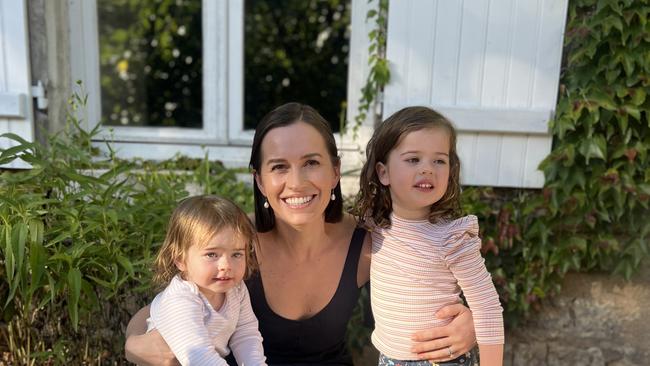
Health
Don't miss out on the headlines from Health. Followed categories will be added to My News.
Molly Penhall was 38 weeks pregnant when she discovered a lump in her left breast, which she initially dismissed as a result of changes during pregnancy and breast feeding.
After insisting on a biopsy, the 35-year-old, who was juggling the stress of a looking after a toddler and new baby during the Covid lockdowns, was diagnosed with triple negative breast cancer.
“It was particularly aggressive and it had grown very quickly in the three weeks of that process,” Ms Penhall from Sydney said.
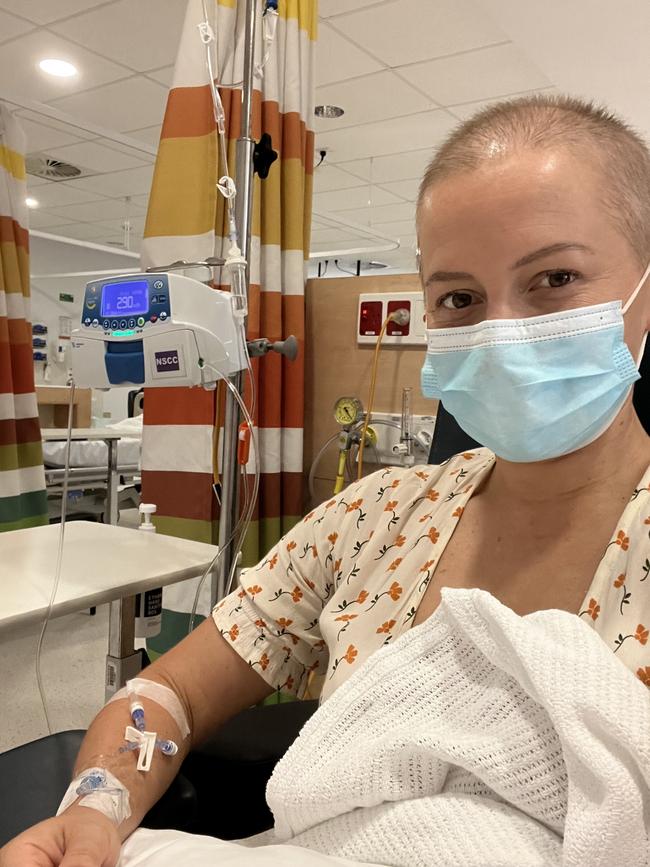
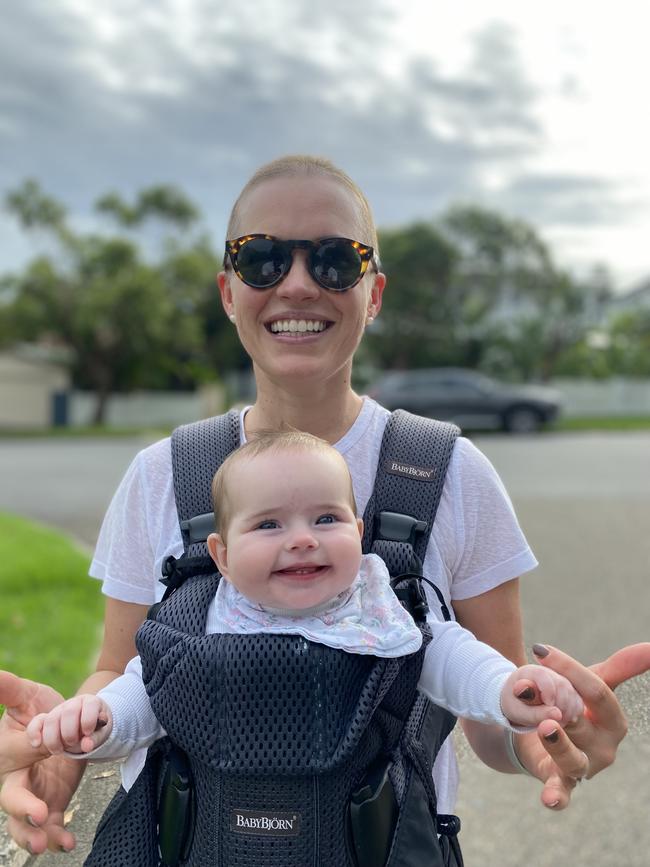
Ms Penhall was lucky enough to be chosen for a breakthrough new Australian immunotherapy treatment regimen run by Breast Cancer Trials, which involved more than one hundred women with early stages of the cancer.
They were given half the normal dose of chemotherapy – two drugs instead of the standard treatment which involves four different treatments. – and had their chemotherapy in half the time – 12 weeks instead of the standard 24 weeks.
They also received an immunotherapy drug.
Not only was the new half strength treatment regimen less ravaging, half the women had their cancer eradicated by the time they had surgery – including Ms Penhall.
Although she lost her hair in the trial, she was able to go to the park with her kids, swim laps and do workouts — and she quickly returned to work as a dentist.
But best of all, “they couldn’t find any evidence of the cancer whatsoever”, at the end of the treatment.
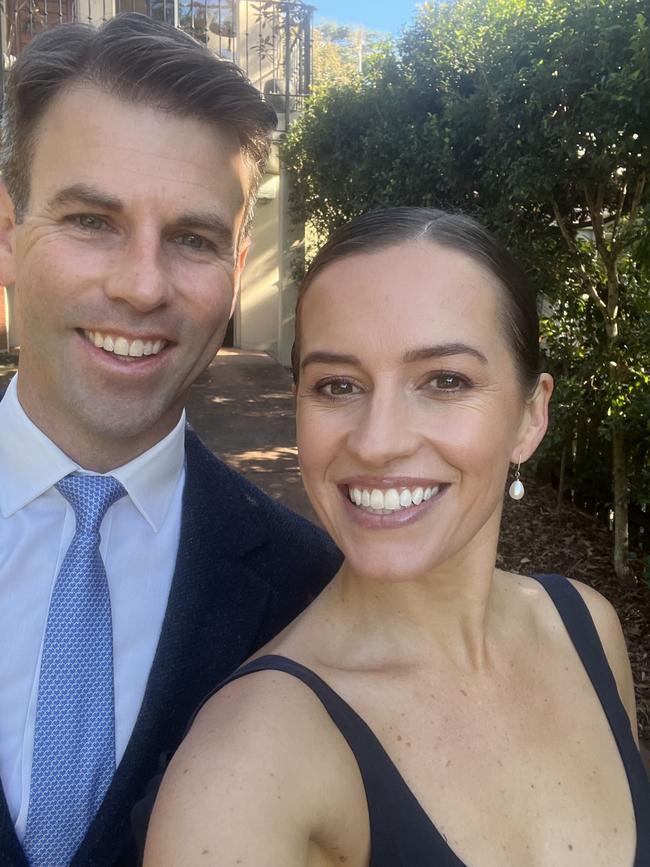
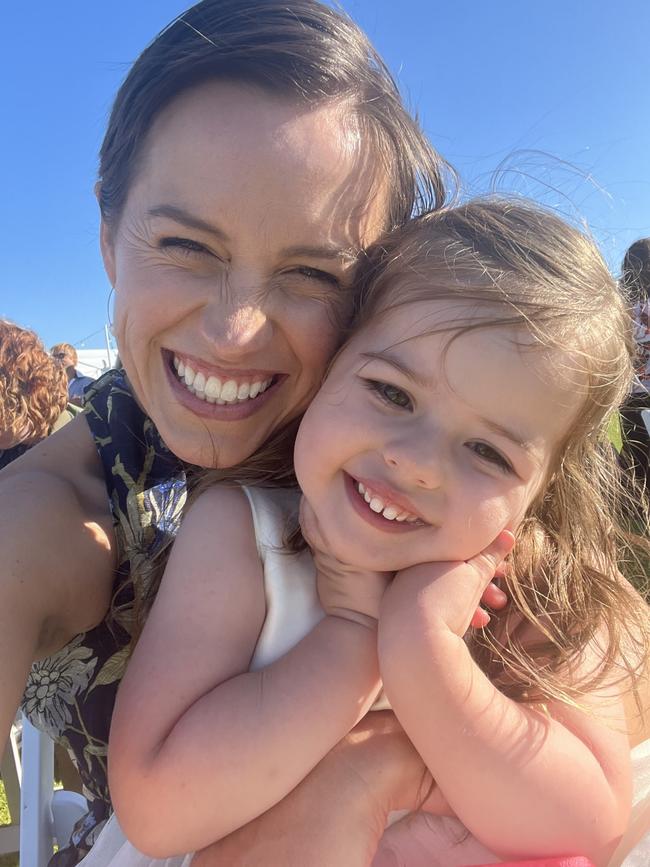
“It is the ideal outcome and long term means your chances of it coming back are so low. A complete response, which is what a lot of people on the trial were getting, means your chances of it coming back, they don’t even PET scan patients any more to check on them because they don’t need to and for my anxiety level moving forward that was enormous,” she said.
Lead researcher Professor Sherene Loi said: “This 12-week chemo-immunotherapy treatment combination is a promising new treatment option that has been very effective at eradicating the cancer in those patients. Those patients in whom we see eradication of the cancer have a good prognosis.”
“The outcomes at surgery was really very similar to the more intensive (chemotherapy) regimens particularly in patients with a smaller tumour, and particularly in patients where we could see their immune systems already active against their breast cancer,” Professor Loi said.
For those patients whose cancer was not completely removed, what was there was small and their immune system was still working against it.
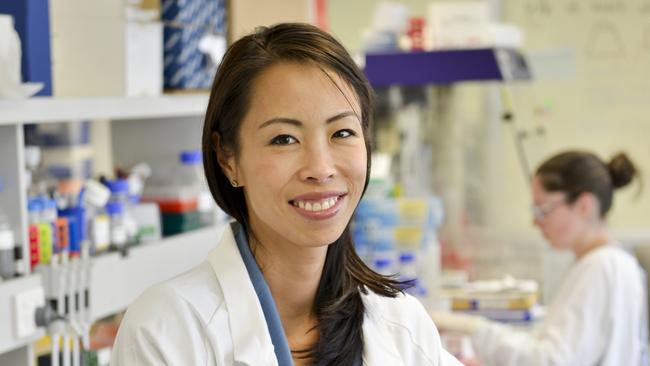
The side effects of the standard chemotherapy regime for this type of cancer are dire so it is crucial to find ways to reduce its impact.
“Patients lose their hair, they have nausea, fatigue, and they run a high risk of getting infections because the chemotherapy actually suppresses their immune system,” Professor Loi said.
“We know that women who have the full 24 weeks of chemotherapy, some of those women never ever go back to work, or they suffer quite a lot of fatigue afterwards. So it’s not a minor thing, obviously having six months of chemotherapy and it has long term impacts on their lives.”
The women from the NeoN trial will be followed for three years to check their cancer does not return.





